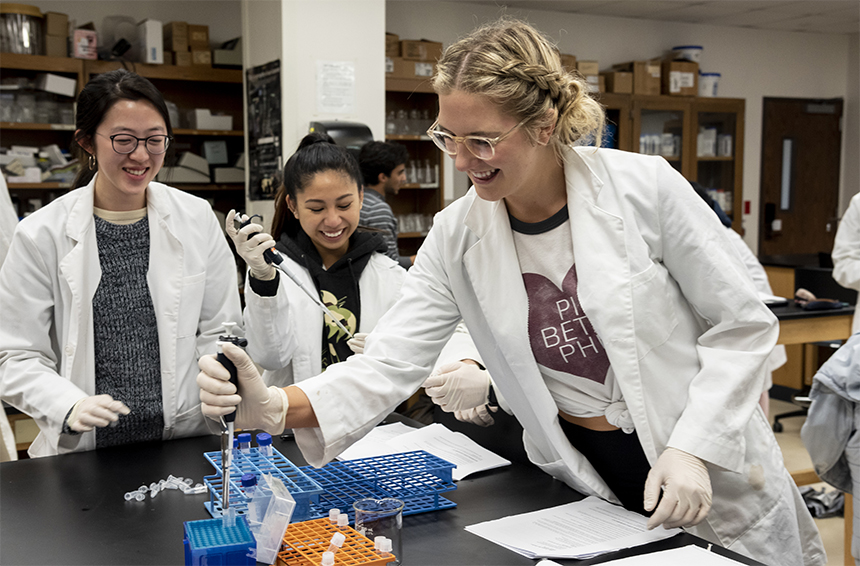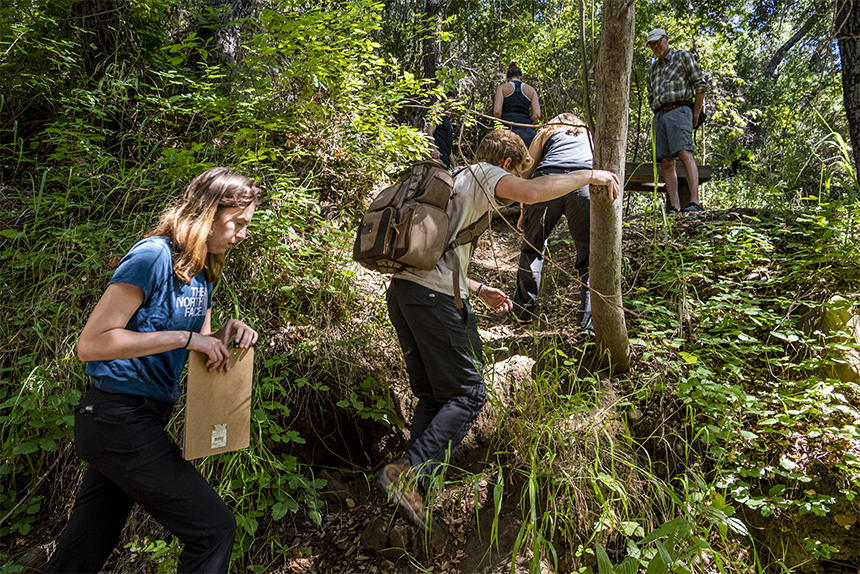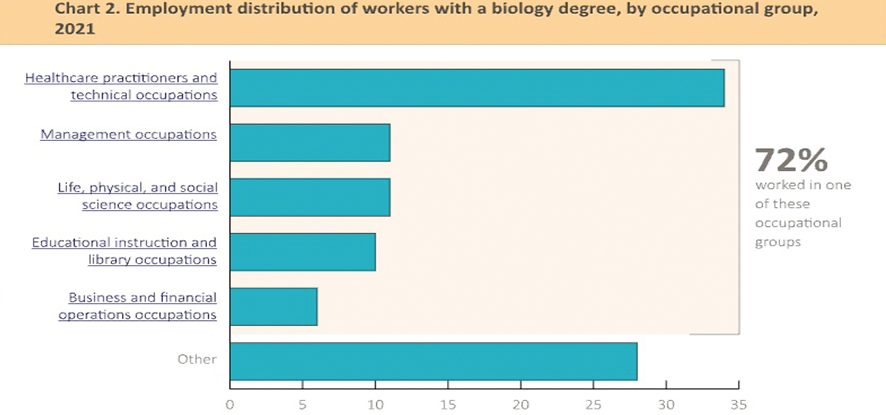What Can You Do With A Biology Degree?

Interested in earning a bachelor of arts degree in biology but not sure what career path it can lead to? The study of biology offers a wide range of career opportunities and earning a degree in it can open doors in a variety of fields. So what can you do with a biology degree? Whether you have a passion for research, healthcare, education, or the environment, there are numerous avenues for you to explore and make a meaningful impact. Let's dive in and discover the possibilities.
What Can You Do with a Biology Degree?
Students who earn a bachelor of arts degree in biology not only have a strong foundation in the biological sciences but also have a broad understanding of the principles and concepts that govern life on earth. The knowledge and skills you acquire during your studies can be applied to a variety of professional fields. Explore some potential career paths:
Medical and Health Sciences
If you have a passion for healthcare and helping others, your biology degree can pave the way for a career in medical and health sciences. You can explore opportunities in fields such as:
- Medical Research: Work as a research assistant or laboratory technician in medical research institutions studying diseases, developing new treatments, and contributing to advancements in healthcare.
- Pharmaceutical Industry: Join pharmaceutical companies and contribute to the development and testing of new drugs, ensuring their safety and effectiveness.
- Clinical Trials: Participate in clinical trials to evaluate the efficacy of new treatments and therapies, playing a crucial role in bringing innovative medical interventions to the market.
Environmental Sciences and Conservation
With growing concerns about the environment and sustainability, the demand for professionals in environmental sciences and conservation is on the rise. A background in biology can be invaluable in the following roles:
- Environmental Consultant: Advise businesses and organizations on environmental regulations, conduct assessments, and develop strategies for sustainable practices.
- Conservation Biologist: Work in wildlife reserves, national parks, or conservation organizations to protect endangered species, restore ecosystems, and promote biodiversity.
- Environmental Educator: Educate the public about environmental issues, organize awareness campaigns, and inspire future generations to care for our planet.
Education and Academia
If you have a passion for teaching and sharing knowledge, a bachelor of arts in biology can be a stepping stone to a career in education and academia. Consider exploring these career options:
- High School Teacher: Inspire and educate the next generation by becoming a biology teacher in high school, sharing your love for science and nurturing young minds.
- College Professor: Pursue a higher degree and become a college-level instructor, conducting lectures, mentoring students, and contributing to scientific research.
- Science Writer: Combine your passion for biology with your writing skills and work as a science writer, translating complex scientific concepts into engaging content for the general public.
Biotechnology and Biomedical Sciences
The field of biotechnology and biomedical sciences is at the forefront of innovation, offering exciting opportunities for biology graduates. Consider the following career paths:
- Genetic Counselor: Help individuals and families understand genetic disorders, assess risks, and make informed decisions about their healthcare options.
- Biomedical Researcher: Join research institutions or biotechnology companies conducting cutting-edge research to develop new treatments, diagnostics, and therapies.
- Forensic Scientist: Apply your knowledge of biology to solve crimes, analyze evidence, and contribute to the criminal justice system as a forensic biologist.
Exploring Career Paths for Biology Graduates
Diving into the realm of career opportunities with a biology degree unveils a spectrum of possibilities spanning diverse occupational groups. From the intricate dynamics of healthcare to the expansive domains of research and conservation, the adaptability of a biology degree equips individuals to make impactful contributions across various sectors. The image below delves into the multifaceted landscape of occupational groups accessible to graduates of biology programs, and draws insights from reputable sources such as the Bureau of Labor Statistics.
[Source: Bureau of Labor Statistics]
FAQs about a Bachelor of Arts in Biology
Q: Can I pursue a career in medicine with a bachelor of arts in biology?
A: While a bachelor of arts in biology provides a strong foundation in the sciences,
further education is required to become a medical doctor. However, your degree can
be an excellent starting point for a career in medical research or other healthcare-related
fields.
Q: Is a bachelor of arts in biology equivalent to a bachelor of science in biology?
A: While both degrees cover core biological concepts, a bachelor of arts often includes
a broader range of liberal arts courses, such as humanities and social sciences, in
addition to the scientific curriculum.
Q: What skills will I develop from earning a bachelor of arts in biology?
A: Throughout your studies you will develop critical thinking, analytical, research,
and communication skills. You will also gain a deep understanding of biological processes
and the ability to apply scientific methods to real-world problems.
Q: Can I transition into a different field with a bachelor of arts in biology?
A: Yes. The skills acquired while studying biology, such as critical thinking, research, and problem-solving, are highly transferable. You can leverage these skills to pursue careers in various fields, such as healthcare administration, scientific writing, or environmental policy.

Pursuing a bachelor of arts in biology opens up a world of exciting opportunities for individuals passionate about the life sciences with graduates embarking on fulfilling careers in various fields. The degree provides a solid foundation for those interested in pursuing advanced degrees in medicine, dentistry, veterinary sciences, or other healthcare professions.
The interdisciplinary nature of the bachelor of arts program in biology at Seaver College allows students to explore complementary fields such as psychology, chemistry, or business, broadening their knowledge base and enhancing their career prospects. The comprehensive curriculum equips students with a strong foundation in biological principles and critical thinking skills, preparing them for a diverse range of career paths and further academic pursuits.
To embark on an enriching academic journey and unlock a world of opportunities, consider pursuing a bachelor of arts in biology at Seaver College of Pepperdine University. Whether you aspire to become a research scientist, healthcare professional, or environmental advocate, this program will empower you with the knowledge and skills needed to succeed.
